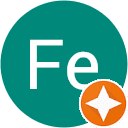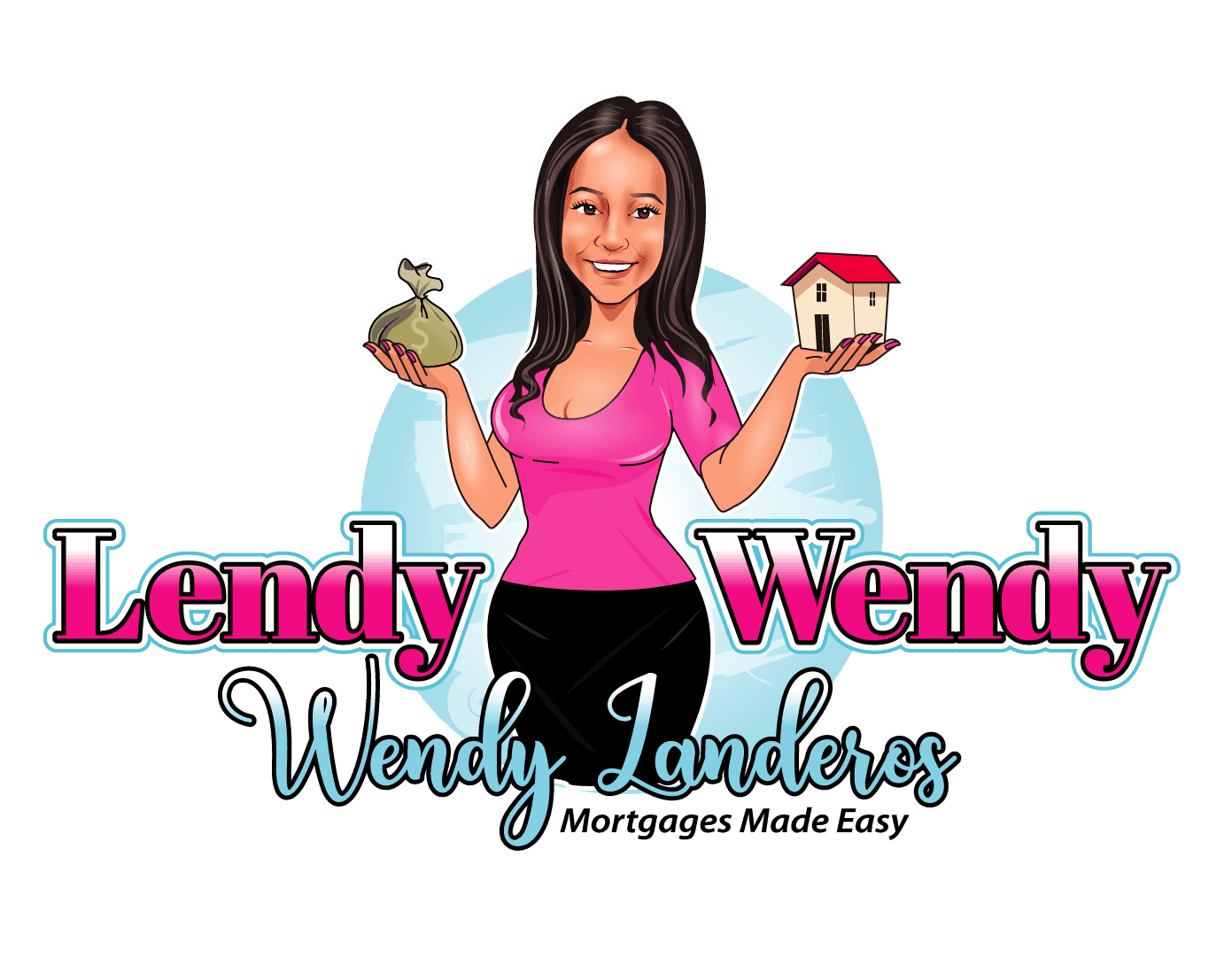Looking for fast approval and great rates on conventional loans in California? Private lenders offer competitive rates and flexible down payment options. With minimum credit score of 620, better rates are available at 740+. Maintain a stable income and debt-to-income ratio below 43%. Choose from fixed or adjustable rates, with low as 3% down payment. Cancel private mortgage insurance and enjoy attractive financing options in California. Interested? Discover more benefits and the application process for conventional loans in the Golden State. Whether you’re a first-time buyer or looking to refinance, conventional loans provide a straightforward path to homeownership with no surprises. For veterans and active-duty military members, exploring VA home loan rates California offers can uncover additional savings and benefits tailored to your service. Start your journey today and secure a loan that meets both your financial needs and long-term goals. From first-time buyers to seasoned homeowners, conventional loans provide tailored solutions to meet diverse needs. To get the best deal, explore tips for California home loans, including locking in low rates during favorable market conditions and improving your credit score before applying. Ready to take the next step? Let California’s thriving real estate market work for you with financing options designed to help you achieve your homeownership dreams.

So, you’re interested in learning about conventional loans in California? Well, let’s start by understanding what these loans are and what purpose they serve. You’ll also discover the benefits that come with opting for a conventional loan over other mortgage options.
What are Conventional Loans?
Conventional loans are traditional mortgage options offered by private lenders in California, distinct from government-backed loans like FHA, VA, or USDA loans. These loans provide a more traditional approach to home financing, offering benefits such as flexible down payment options, competitive interest rates, and the ability to finance various property types like single-family homes, condos, and town homes. With conventional loans, borrowers can enjoy the flexibility of choosing between fixed and adjustable-rate mortgages, catering to different financial situations. Additionally, conventional loans typically require a minimum credit score of 620, making them suitable for those with stable income histories and manageable debt levels. Understanding the advantages of conventional home loans can help you make informed decisions when navigating the mortgage market.
Purpose and Benefits of Conventional Loans
Considering the advantages and flexibility associated with conventional loans, understanding their purpose and benefits can greatly aid in your decision-making process when seeking mortgage options in California. Conventional home loans, offered by private lenders, provide various benefits such as competitive interest rates and down payment options. With conventional loan interest rates, you can choose between fixed or adjustable rates, catering to your financial goals. The flexibility in down payment choices, including as low as 3% for first-time home buyers, makes conventional loans accessible. Additionally, while private mortgage insurance may be required for down payments below 20%, it can be canceled once the loan-to-value ratio improves. These features make conventional loans an attractive option for those looking for reliable financing in the California real estate market.
Eligibility Criteria
When evaluating conventional loans in California, you must meet specific eligibility criteria. Your credit score should typically be at least 620, with better terms available for higher scores. Ensuring a stable income history and property type that meets the lender’s requirements are also key factors to take into account.
Credit Score Requirements
When considering a conventional loan in California, your credit score plays an essential role in determining your eligibility. Lenders typically look for a minimum credit score of 620, with higher scores leading to better interest rates. Factors such as timely payments, credit utilization, and credit history can all impact your credit score and influence your ability to secure a conventional loan.
Minimum credit score
To qualify for a conventional loan in California, you generally need a minimum credit score of 620, with better rates available for scores of 740 and above. This is an important aspect of conventional loan pre-qualification, especially for first-time home buyers. Ensuring your credit score meets these conventional loan credit score requirements can help you secure a loan with favorable terms and rates.
Factors affecting credit score
Understanding the factors that influence your credit score is essential when applying for a conventional loan in California.
- Your credit score directly impacts conventional loan eligibility requirements.
- Maintaining a good credit score is vital for how to qualify for conventional loans.
- Consistent on-time payments and low credit utilization can positively affect your credit score.
Income Requirements
When applying for a conventional loan in California, keep in mind the essential income requirements. Lenders will assess your debt-to-income ratio and look for a stable income history to determine your eligibility. Ensuring these points are in order can increase your chances of qualifying for the loan you need.
Debt-to-income ratio
Maintain a debt-to-income ratio below 43% to meet the income requirements for conventional loans in California.
- Keep your monthly debt payments below 43% of your gross monthly income.
- Pay off existing debts to lower your debt-to-income ratio.
- Increase your income or decrease your debt to improve your eligibility for conventional loans.
Stable income history
To meet the income requirements for conventional loans in California, make sure you have a consistent and reliable income history. Lenders will assess your income stability through documentation like pay stubs, tax returns, and employment verification. Conventional loans are available for low and moderate-income families, with income limits varying by location. Ensuring a steady income stream can enhance your chances of approval and favorable loan terms.
Property Requirements
When evaluating property requirements for a conventional loan in California, it is essential to consider the types of properties that are eligible, such as single-family homes, condos, and town homes. Additionally, loan limits are determined based on the property type and its location within the state. Understanding these factors will help you assess the suitability of your desired property for a conventional loan.
Types of properties eligible
Different types of properties eligible for conventional loans in California include single-family homes, condos, and town homes.
- Single-Family Homes: Ideal for families looking for a standalone property.
- Condos: Great for individuals seeking shared amenities and lower maintenance.
- Town homes: Perfect for those desiring a mix of single-family home space and condo-like convenience.
Loan limits based on property type and location
Loan limits for conventional loans in California vary depending on the type of property and its location. The conventional loan maximum loan limits dictate the amount you can borrow. These loans are typically used for primary residences, following conventional loan guidelines. Understanding these limits is important when seeking financing for your property in California to make sure you meet the eligibility criteria set forth by lenders.
Loan Benefits

When considering conventional loans, you’ll find benefits in three key areas: down payment options, interest rates, and mortgage insurance. You can secure financing with a minimum down payment as low as 3%, choose from fixed or adjustable rates, and manage private mortgage insurance requirements effectively. These advantages make conventional loans a flexible and competitive option for your home financing needs.
Down Payment Options
When it comes to down payment options for conventional loans in California, you’ll find flexibility that suits your financial goals. From a minimum down payment as low as 3% for first-time home buyers to various choices for higher down payments, you can tailor your loan to fit your needs. Understanding these options can help you make informed decisions about your home purchase. Additionally, exploring different loan programs can open up even more opportunities, such as USDA home loans California, which offer zero down payment options for eligible rural properties. While conventional loans provide flexibility, it’s worth comparing them with other loan types to ensure you’re getting the best fit for your situation. Taking the time to research and weigh your options can empower you to move forward with confidence in your home-buying journey.
Minimum down payment requirements
For prospective home buyers considering conventional loans in California, exploring the minimum down payment requirements can provide valuable insights into available options.
Minimum Down Payment Requirements:
- First-time home buyers can qualify with as low as 3% down payment.
- More down payment options are available for those looking to invest more upfront.
- Understanding the down payment for conventional loans vs. FHA loans can help you make an informed decision.
Options for higher down payments
Consider opting for a higher down payment when applying for a conventional loan to potentially benefit from more favorable terms and options. Higher down payments can improve home affordability, increase conventional loan lender requirements, and may offer better conventional loan refinancing options in the future. Evaluate your financial situation to determine if a higher down payment aligns with your goals and long-term savings.
Interest Rates
When considering conventional loans, you’ll encounter the choice between fixed and adjustable interest rates. Fixed rates offer stability with predictable payments, while adjustable rates may provide initial savings but can fluctuate over time. Understanding the advantages and considerations of each can help you make an informed decision that suits your financial goals.
Fixed vs. adjustable rates
Choosing between fixed and adjustable rates on a conventional loan can greatly impact your overall interest costs over the life of the loan.
- Fixed-rate conventional loans provide stable monthly payments.
- Adjustable-rate conventional loans may offer lower initial rates but can increase over time.
- Conventional loan interest rate lock allows you to secure a specific rate for a set period, protecting you from rate fluctuations.
Rate advantages and considerations
To make an informed decision regarding conventional loans, understanding the rate advantages and considerations is key when exploring interest rates. Conventional mortgage options offer competitive rates for well-qualified borrowers. Private mortgage insurance (PMI) is required for down payments less than 20%, but can be canceled once the loan-to-value ratio reaches 80%. Consider these factors when maneuvering through the conventional loan application process.
Mortgage Insurance
When you secure a conventional loan with a down payment less than 20%, private mortgage insurance (PMI) is typically required to protect the lender. Wondering how to steer clear of PMI? Consider making a larger down payment to reach the 20% threshold and avoid this additional cost.
When is private mortgage insurance (PMI) required?
Private mortgage insurance (PMI) is typically required for conventional loans when the down payment is less than 20% of the home’s purchase price. To highlight:
- Protection: PMI protects the lender in case of borrower default.
- Cost: PMI costs vary but are usually between 0.5% to 1% of the loan amount annually.
- Cancellation: PMI can be canceled once the loan-to-value ratio reaches 80%.
How to avoid PMI
Avoiding private mortgage insurance (PMI) can save you money on your conventional loan by aiming for a down payment of at least 20% of the home’s purchase price. Unlike USDA loans, conventional loans require PMI for down payments below 20%. This insurance protects the lender in case of default but can be canceled once the loan-to-value ratio reaches 80%. Understand your conventional loan repayment schedule to manage PMI effectively.
Application Process
When applying for a conventional loan in California, you’ll start by getting pre-qualified to assess your eligibility and gather necessary documents. Once you submit your application and required paperwork, the underwriting process will review your financial situation and property qualification. After approval, you’ll move on to closing the loan, finalizing the process.
Pre-qualification
When pre-qualifying for a conventional loan, you’ll need to follow specific steps and gather essential documents. This process helps lenders assess your financial situation and determine your eligibility for a loan. By preparing the required paperwork and meeting the criteria, you can streamline the application process and move closer to securing a conventional loan.
Steps to pre-qualify
To pre-qualify for a conventional loan, start by determining your eligibility and gathering the necessary documents.
- Check your credit score and make sure it meets the minimum requirements.
- Calculate your debt-to-income ratio to see if you qualify.
- Understand the private mortgage insurance (PMI) implications for your down payment amount.
Documents needed
Wondering what documents you need for the pre-qualification process of a conventional loan application? For a smooth application, gather proof of income, tax returns, and bank statements. These documents help lenders assess your financial stability and determine your eligibility for conventional home loan benefits like private mortgage insurance (PMI) and mortgage assistance. Make sure to have these ready to expedite the process.
| Required Documents | Description | Purpose |
|---|---|---|
| Proof of Income | Pay stubs, W-2 forms | Verify income stability |
| Tax Returns | Previous years’ returns | Assess financial history |
| Bank Statements | Recent statements | Evaluate assets and liabilities |
Application Submission
When applying for a conventional loan in California, make sure you have all the required information and documentation ready. This includes details about your income, assets, debts, and employment history. Once you gather everything, you can move forward with submitting your application to start the loan process.
Required information and documentation
During the application submission process for a conventional loan, you will need to provide specific information and documentation to support your loan application. Here are three key items required:
- Proof of Income: Pay stubs, W-2s, or tax returns.
- Credit History: Reports from credit bureaus.
- Property Details: Purchase agreement, property appraisal.
Ensuring you have these ready can help streamline your loan approval process.
Timeline for submission
To secure a smooth application process for a conventional loan, make sure to submit your application along with the required documentation promptly. Once you have completed your application and gathered all necessary paperwork, submit them to your lender as soon as possible. Timely submission guarantees that your application can move forward efficiently, allowing you to progress through the loan approval process without unnecessary delays.
Underwriting and Approval
When you reach the underwriting stage of the conventional loan application process, you can expect a thorough review of your financial situation and property eligibility. Common approval criteria include credit score, income stability, and debt-to-income ratio. Understanding what to expect during underwriting can help you prepare for the final approval and closing stages of your loan application.
What to expect during underwriting
You might go through a thorough financial review and property evaluation during the underwriting process when applying for a conventional loan in California.
- Your financial documents will be carefully scrutinized.
- The property appraisal will determine its value.
- Any additional information requested must be provided promptly.
Common approval criteria
During the underwriting and approval process for a conventional loan in California, your financial stability and property details will be carefully assessed. Lenders typically look at your credit score, income history, debt-to-income ratio, and property type. Meeting the minimum credit score of 620, having a stable income, and ensuring your property meets requirements are key factors for approval. Be prepared with necessary documentation to facilitate a smooth approval process.
Closing Process
As you prepare to close your conventional loan, it’s important to understand the final steps and what you need to bring to the closing table. These points will help guarantee a smooth and successful closing process. Be sure to have all necessary documents ready and ask your lender any questions you may have before closing.
Final steps before closing
Before finalizing your conventional loan, it is crucial to complete the necessary steps leading up to the closing process.
- Double-check all documentation for accuracy.
- Confirm all conditions set by the lender are met.
- Be prepared for a final credit check before closing.
What to bring to closing
Double-checking all documentation and ensuring that all lender conditions are met are important steps before closing, and now it’s time to prepare for what you need to bring to the closing process. At the closing, remember to bring a government-issued ID, proof of homeowner’s insurance, any outstanding documents requested by the lender, and a cashier’s check or proof of wire transfer for the down payment and closing costs.
Comparison with Other Loan Types

When considering different loan types such as FHA, USDA, and VA loans, it’s important to weigh the pros and cons of each against conventional loans. Conventional loans might suit you better if you have a strong credit score and can afford a higher down payment, while government-backed loans could be more beneficial if you have specific eligibility requirements or a lower credit score. Understanding the distinctions between these loan options can help you make an informed decision tailored to your financial situation and home ownership goals.
Conventional vs. FHA Loans
When comparing conventional loans to FHA loans and other types, it’s important to understand the key differences and similarities. You’ll find that conventional loans might be more suitable for you in situations where you have strong credit and can make higher down payments. Exploring these distinctions can help you make an informed decision when selecting the right mortgage option for your needs.
Key differences and similarities
Comparing Conventional loans to FHA loans reveals key distinctions and similarities in eligibility requirements and benefits. Conventional loans typically have stricter credit score requirements and may require a higher down payment compared to FHA loans, which are designed to be more accessible for first-time homebuyers or those with lower credit scores. FHA loans California requirements, for instance, include a minimum credit score of 580 to qualify for the low 3.5% down payment option, though applicants with scores between 500-579 may still qualify with a larger down payment. Both loan types have their own advantages, making it important to assess individual financial situations to determine the best fit. Additionally, FHA loans often have more flexible debt-to-income ratio guidelines, allowing borrowers with higher debt levels to qualify compared to conventional loans. When evaluating FHA loan requirements in California, it’s also worth noting that FHA loans come with mandatory mortgage insurance premiums, which can increase the overall cost of the loan over time. However, these loans remain a popular choice for those looking to enter the housing market with less stringent financial barriers.
- Eligibility Criteria:
- Credit score requirements differ considerably.
- Down payment options vary widely.
- Mortgage insurance factors into loan approval.
Both loan types offer unique advantages, catering to different financial situations and preferences. Understanding these differences can help you choose the right mortgage option for your needs.
Situations where conventional loans are better
In certain scenarios, conventional loans outshine FHA loans due to their flexible down payment options and competitive interest rates. If you have a strong credit score and can afford a higher down payment, a conventional loan might offer you better terms. With down payment options as low as 3% for first-time home buyers and attractive interest rates, conventional loans can be a favorable choice for well-qualified borrowers.
Conventional vs. USDA Loans
When considering conventional vs. USDA loans, it’s important to weigh the pros and cons of each option. Understanding the best use cases for conventional loans can help you make an informed decision based on your financial situation and home ownership goals. Take into account factors like down payment requirements, eligibility criteria, and long-term affordability to determine which loan type aligns best with your needs.
Pros and cons of each
Consider the advantages and disadvantages of Conventional loans compared to USDA loans to make an informed decision on your mortgage options.
- Down Payment Requirements:
- Conventional loans may have lower down payment options compared to USDA loans.
- Property Eligibility:
- USDA loans are specifically designed for rural areas, while Conventional loans have broader property eligibility.
- Income Limits:
- USDA loans have income restrictions, whereas Conventional loans are more flexible in this aspect.
Best use cases for conventional loans
To determine the best use cases for conventional loans compared to USDA loans, evaluate factors like down payment flexibility, property eligibility, and income limits. Conventional loans are ideal for those with higher credit scores and larger down payments, offering competitive rates and more property options. USDA loans, on the other hand, cater to low-to-moderate-income borrowers in eligible rural areas, providing 100% financing and lower income requirements.
Conventional vs. VA Loans
When comparing conventional loans with VA loans, you’ll notice differences in eligibility requirements. Understanding the benefits of each loan type can help you make an informed decision. Let’s explore these key points to see which loan aligns best with your financial goals.
Eligibility differences
Conventional loans and VA loans differ in their eligibility criteria, impacting who can qualify for each type of loan.
- Credit Score: Conventional loans typically require a minimum credit score of 620, while VA loans may have more flexible credit score requirements.
- Income Verification: Conventional loans often require a stable income history and a debt-to-income ratio (DTI) below 43%, whereas VA loans may have different income verification standards.
- Property Eligibility: Conventional loans have specific property requirements, while VA loans may have additional considerations.
Benefits comparison
Comparing the benefits of conventional loans and VA loans reveals distinct advantages for different borrower profiles. Conventional loans are ideal for those with strong credit and higher down payments, offering competitive rates and flexible down payment options starting at 3%. On the other hand, VA loans cater to veterans and active-duty service members, providing benefits like zero down payment requirements and potentially lower interest rates.
FAQs
Wondering about common queries regarding conventional loans in California? You might be asking if these loans can be refinanced, what the typical closing costs entail, or how long the loan process takes. You may also be curious about the possibility of securing a conventional loan with a low down payment or the advantages of a higher down payment.
Can conventional loans be refinanced?
Considering refinancing your mortgage? Yes, conventional loans can be refinanced. Here are three key points to keep in mind:
- Timing: Refinancing can usually be done after making a few months of on-time payments on your current conventional loan.
- Benefits: Refinancing can help you secure a lower interest rate, reduce your monthly payments, or change the loan term to better suit your financial goals.
- Process: Contact your lender to discuss your refinancing options, gather necessary documents, submit an application, and go through the underwriting process for approval.
Refinancing your conventional loan can be a strategic move to potentially save money or meet your changing financial needs.
What are the typical closing costs for conventional loans?
Exploring the financial aspects of your conventional loan journey, understanding the typical closing costs involved can help you plan your budget effectively. Typical closing costs for conventional loans usually range from 2% to 5% of the loan amount. These costs may include loan origination fees, appraisal fees, title insurance, attorney fees, and prepaid property taxes and insurance. Additionally, there could be fees for credit reports, underwriting, and processing. Discussing these costs with your lender to get a clear breakdown and guarantee there are no surprises at closing. Having awareness of these expenses upfront can help you budget accordingly and navigate the closing process smoothly.
How long does the conventional loan process take?
The conventional loan process typically takes around 30 to 45 days from application submission to closing. Here’s what you can expect during this timeline:
- Application Review: Your application and financial documents will be thoroughly reviewed by the lender to assess your eligibility.
- Underwriting Process: The underwriting process involves a detailed evaluation of your financial situation and the property you intend to purchase.
- Final Approval and Closing: Once your loan is approved, you’ll proceed to the closing stage where the necessary paperwork is signed, and the funds are disbursed for the purchase.
Can I get a conventional loan with a low down payment?
You can secure a conventional loan with a low down payment option, making home ownership more accessible for many borrowers. With down payments as low as 3% for first-time home buyers, this option provides flexibility for those looking to purchase a home. Here’s a breakdown of how a low down payment on a conventional loan can benefit you:
| Benefits of Low Down Payment | Emotion | Explanation |
|---|---|---|
| Increased Affordability | Excitement | Lower upfront costs make buying a home more achievable. |
| Faster Path to Home ownership | Hope | Easier entry into the housing market without significant savings. |
| More Savings for Other Expenses | Relief | Keeping more funds available for emergency situations or investments. |
What are the benefits of a higher down payment on a conventional loan?
Considering a higher down payment on a conventional loan can provide various advantages that benefit borrowers in the long run.
- Lower Monthly Payments: A higher down payment reduces the loan amount, resulting in lower monthly payments, which can improve your cash flow and overall financial stability.
- Equity Build-Up: A larger down payment means starting with more equity in your home, helping you build wealth and potentially avoid private mortgage insurance (PMI) costs.
- Improved Loan Terms: Lenders may offer better interest rates and terms for borrowers with higher down payments, saving you money over the life of the loan and increasing your chances of loan approval.
Contact and Support

If you need assistance or have questions about conventional loans in California, reaching out to Lendy Wendy is a great option. You can benefit from a free consultation and receive personalized advice tailored to your specific financial needs. Additionally, you can access additional resources and tools to help you navigate the loan process more effectively.
How to reach Lendy Wendy for assistance
To inquire about assistance or support from Lendy Wendy, you can reach out by calling 925-234-1912 or emailing wendy@lendywendy.com. If you have questions or need guidance regarding conventional loans in California, here’s how you can connect with Lendy Wendy:
- Call: Dial 925-234-1912 to speak directly with Lendy Wendy for personalized assistance.
- Email: Drop an email to wendy@lendywendy.com to get your queries answered promptly.
- Visit: Schedule an appointment to meet Lendy Wendy in person at her office for a detailed discussion about your loan options.
Feel free to reach out for expert advice and support tailored to your specific loan needs.
Free consultation and personalized advice
For personalized advice and a free consultation on conventional loans in California, reach out to Lendy Wendy at 925-234-1912 or via email at wendy@lendywendy.com. Lendy Wendy is here to help you navigate the world of conventional loans, offering expert guidance tailored to your unique financial situation and home buying goals. Whether you are a first-time home buyer exploring down payment options or a seasoned homeowner looking to refinance, Lendy Wendy can provide you with the information you need to make informed decisions. Don’t hesitate to contact Lendy Wendy for a personalized consultation and expert advice that can help you secure the best conventional loan rates in California.
Additional resources and tools
Explore Lendy Wendy’s range of additional resources and tools to support your journey in understanding and securing conventional loans in California.
- Knowledge Base: Access an extensive collection of articles, guides, and FAQs to enhance your understanding of conventional loans, eligibility criteria, and the application process.
- Loan Calculator: Use our user-friendly loan calculator to estimate monthly payments, compare different loan scenarios, and determine how much you can afford.
- Customer Support: Reach out to our knowledgeable team via phone at 925-234-1912 or email at wendy@lendywendy.com for personalized assistance, answers to your questions, and guidance throughout the loan process.
With these resources at your disposal, you can feel confident and informed as you navigate the world of conventional loans in California. With these resources at your disposal, you can feel confident and informed as you navigate the world of conventional loans in California. Additionally, understanding the nuances of manufactured home loans in California can provide even more flexibility for those exploring housing options beyond traditional structures. Taking the time to compare lenders and loan terms ensures you can make well-informed decisions tailored to your unique financial goals.
Conclusion
Now that you have the knowledge and guidance to secure a conventional loan in California, you’re ready to embark on the world of home financing with confidence. Like a skilled sailor exploring the open seas, you can chart a course towards your dream home with fast approval and great rates. Trust in your abilities and set sail on this exciting journey towards home ownership, knowing that you have the tools to succeed.





















